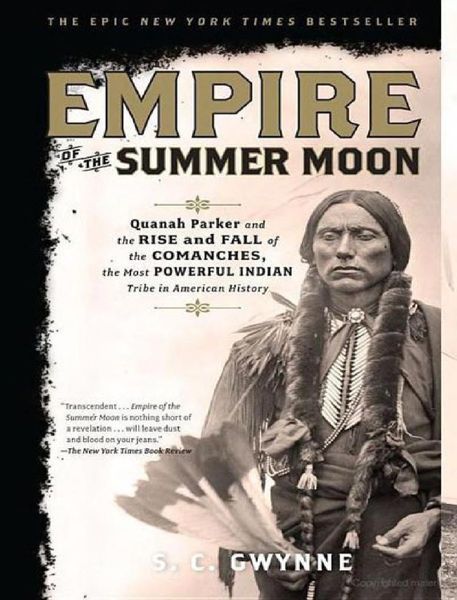
Empire of the Summer Moon Quanah Parker and the Rise and Fall of the Comanches, the Most Powerful Indian Tribe in American History
Describes the actions of both whites and Comanches during a 40-year war over territory, in a story that begins with the kidnapping of a white girl, who grew up to marry a Comanche chief and have a son, Quanah, who became a great warrior.
Reviews
Wynn Netherland@wynn
Jeremy Anderberg@jeremyanderberg
Brandon Mueller@bmueller10
Kevin Stofan@tankofvines
Patrick Ruster@prasta
A. D. Knapp@haselrig
Niklas Westren-Doll@nikkewd
Darcy Lambert@mokehil
Rob@robcesq
D VA@pneumatic
Jayme Cochrane@jamesco
Michael Cowell@chaosweeper
Erik Wallace@erikwallace
Jerry Eakes@jeakes
Nicholas Charriere@nichochar
Morgan Holland@morgz
Courtney@courto875
Paul beham@idontread
Briar Rose@briarrosereads
Frank White@fwfl850
Michael W@mrwool
Brooks Bradley Leete@brooks
Amanda Gilson@dinkycrow
Claire Taylor@eachpeachclaire